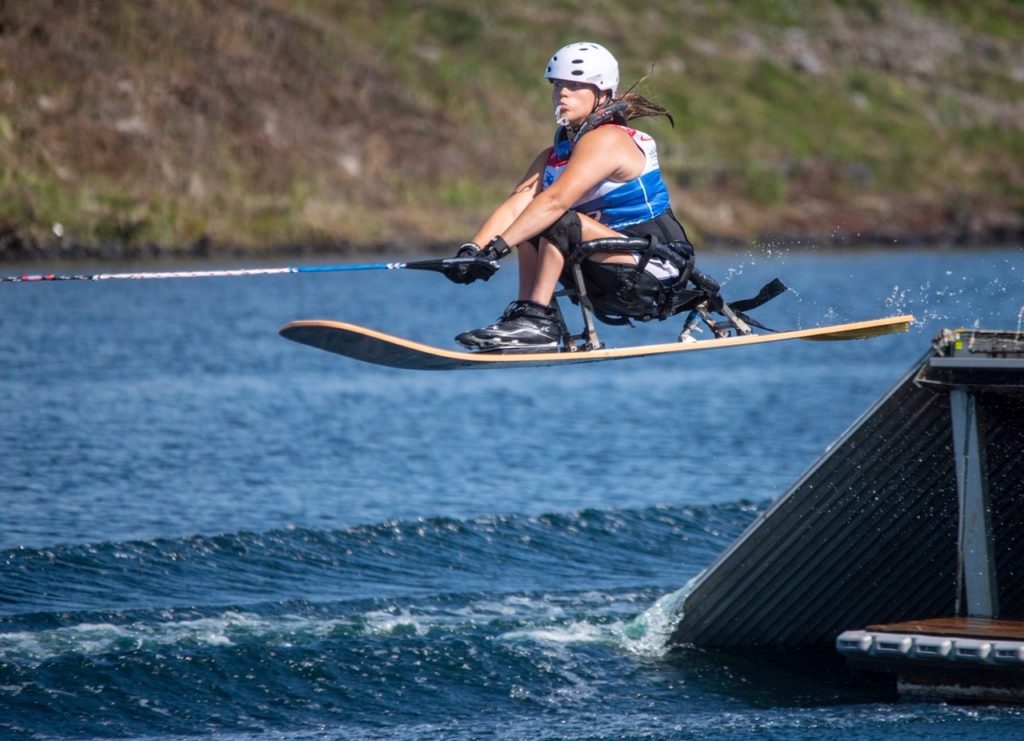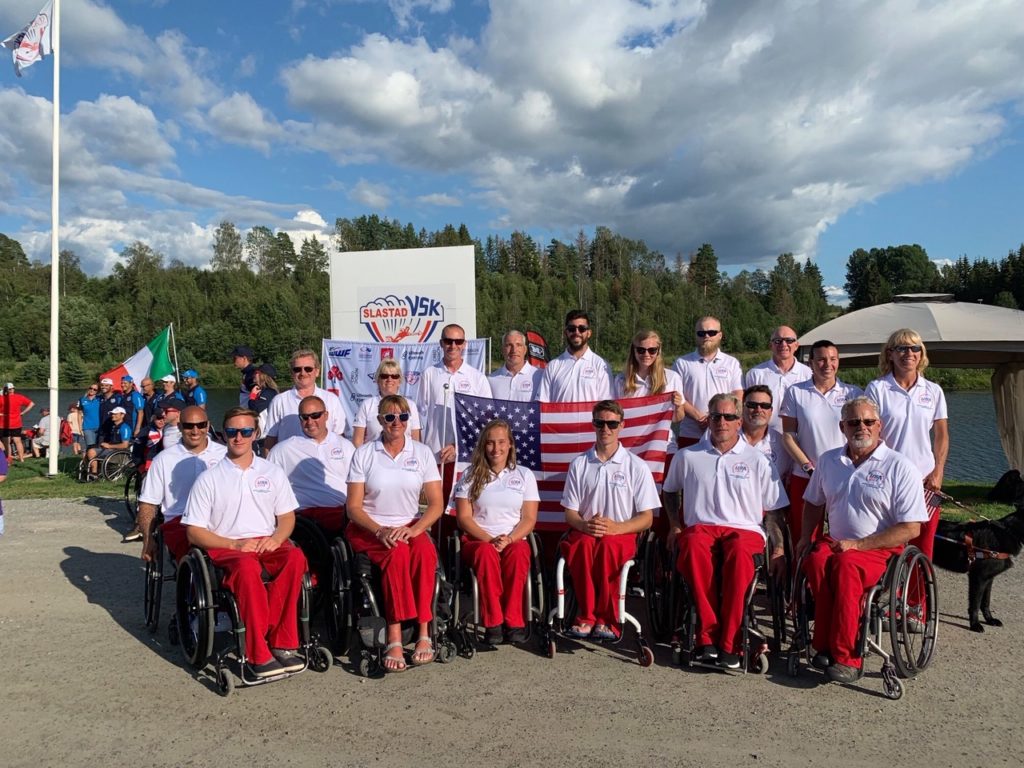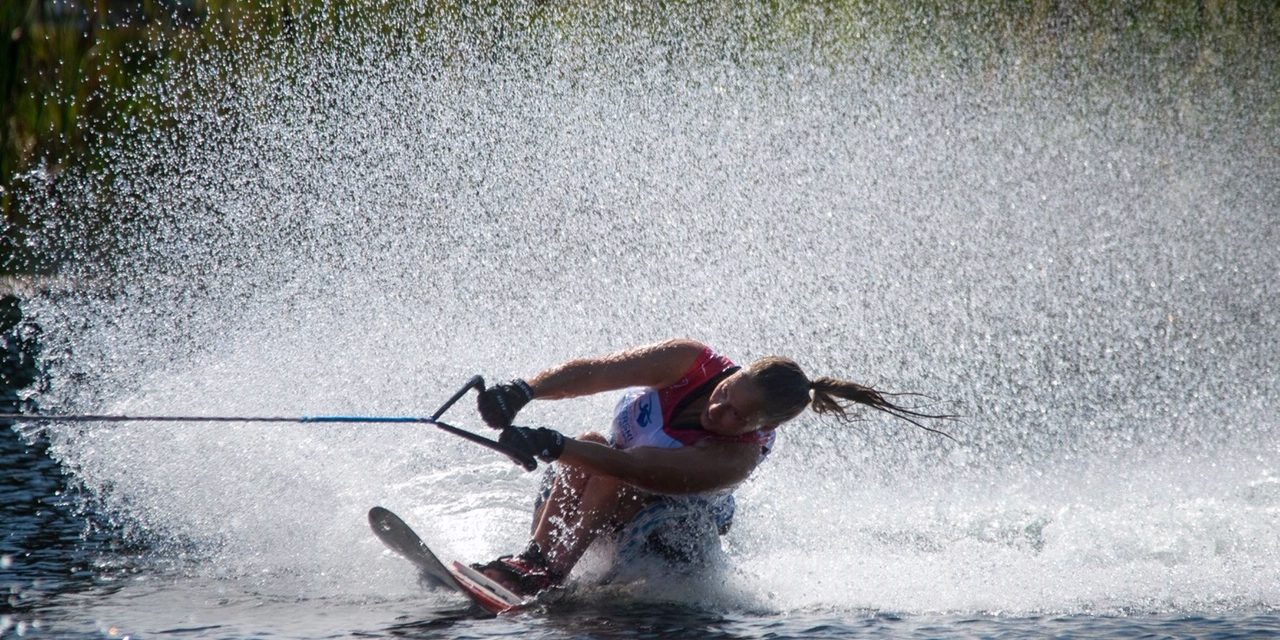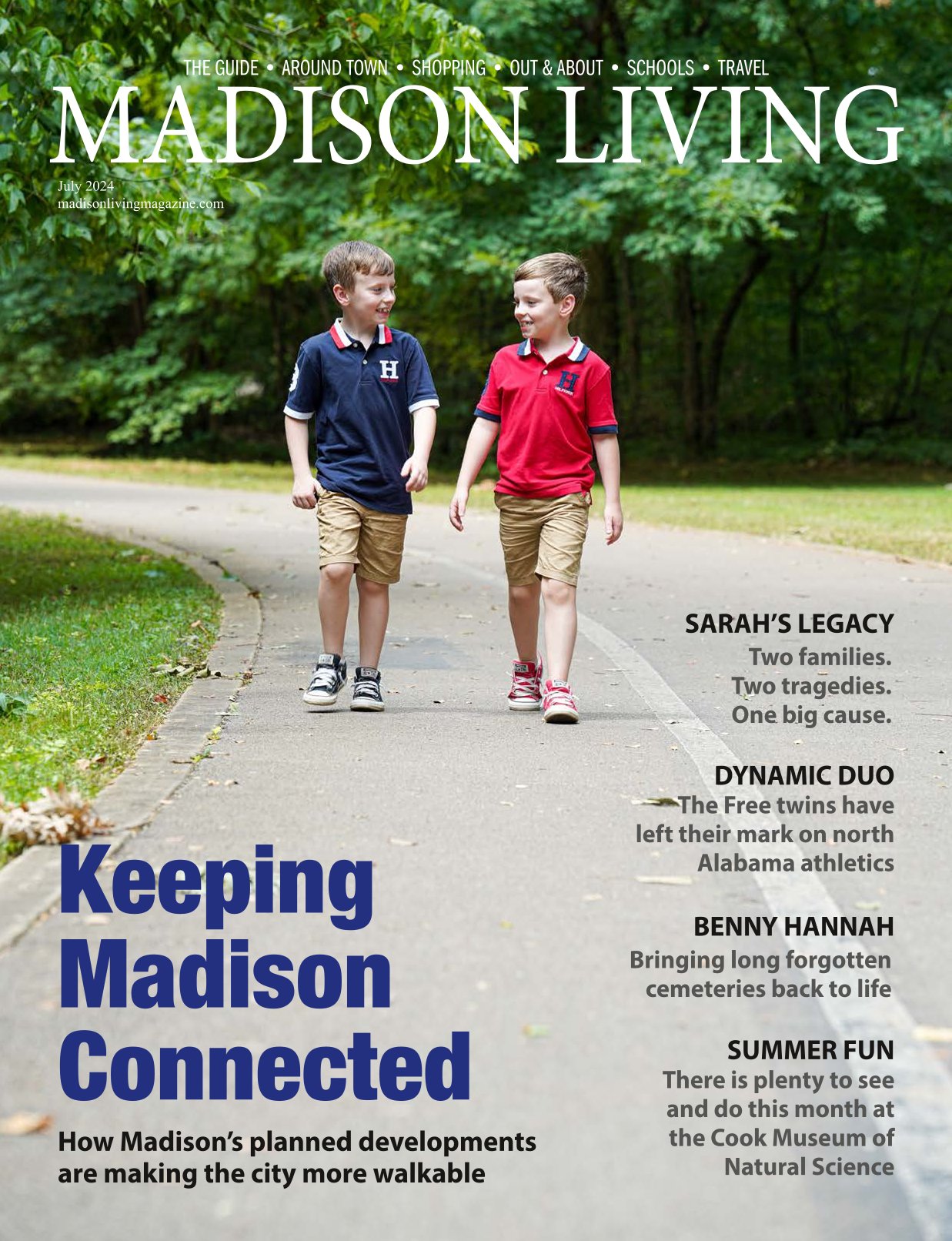Spina bifida can’t stop Madison college athlete
PHOTOGRAPHS CONTRIBUTED
Sarah Switzer’s friends nicknamed her “Pearl” after she wore a pair of pearl earrings to practice with the Auburn University wheelchair basketball team. The squad finished ninth in the country last season and is in practice sessions for another year of competitive action.
Switzer is also a world-class water skier; in July 2018 she won medals in three events and finished second overall at the World Championships held in Skarnes, Norway. Her USA Team took home the gold medal. “It was icing on the cake,” Switzer said. “It felt awesome.” Any day participating in her passion as a water skier is award-worthy, as the 20-year-old AU sophomore is lucky to be alive.

Switzer, who is majoring in wildlife ecology management and aims to become a veterinary technician, was born with spina bifida–a crippling birth defect that affected her lower legs, requiring she wear braces to walk. Her condition has been well documented since her birth in 1999, as she went through a controversial experimental fetal surgery; many have called her the little girl who was born twice.
Her parents, Mike and Trish Switzer, faced a gut-wrenching moment that forever changed their lives when, during a routine examination, they were told their unborn child had spina bifida, a condition in which an opening in the spinal cord can cause total paralysis. The couple chose to undergo a procedure in the 23rd week of the pregnancy–July 1, 1999–in which their baby was removed from her mother’s uterus, operated on and returned to the womb for an additional two months before she was “officially” born Aug. 22.
The entire procedure was captured on film and published in the December 1999 edition of Life Magazine, including a photo of Sarah’s arm emerging from the uterus. Her story was titled “The Girl Born Twice.” The noted photograph featured the attending surgeon holding the baby’s hand outside the uterus.
At age 7 Switzer received her first service dog, Bakari, whom she had until his death of oral cancer in 2018. She said the experience of having a companion animal –and facing his disease and death –prompted her to advance in the world of medicine for animals.
It was also at age 7 that Switzer was in wheelchair basketball action at the Olympic Training Center in Birmingham as part of the Paralympics when she was approached by Coach Joe Ray, who asked her to try water skiing instead. “I’ve always loved the water and outdoor activities, and water skiing combines both,” said Switzer, 20. “My first attempt at the sport was on Lay Lake in Wilsonville. A special-designed “cage” was fitted to my body size and the same size as my wheelchair. Two lifeguard-certified guides were alongside to assist if needed. The device is designed where it’s difficult to fall and difficult to fail.” Today Switzer uses a special-made water-skiing seat, with her feet strapped. She said once she learned how to balance, she discovered she loved the sport, being outdoors among nature.
Her competition skiing experiences began at age 14 at a national tournament held in Georgia. She had watched numerous national competitions, and she said seeing other athletes with disabilities succeed in the sport inspired her to join their ranks.
Her performance at the games in Norway merited top-place finishes. In the seated category, she scored third place in slalom, seventh in tricks and second in jump. Her overall score, 2,241.36, gave her a runner-up spot to a participant from Canada.

Switzer is classified as a MP5 skier. Those in this category are generally amputees who cannot ski standing; skiers with low or incomplete spinal cord injuries; and skiers with required minimum disability. Many across the world recognized the term adaptive skier for those in Switzer’s position, but the pearl of an athlete said the challenge of lifelong adversity can make for a stronger person. “I’ve had my moments of crying, but I’ve had a good support team that has always been there for me and my efforts,” said Switzer. “I feel I’ve overcome my condition and have adapted to my surroundings. I’m a Christian and believe I’m doing what was intended for me.” Her father’s travels in the military led the family to the United Kingdom just prior to moving to Madison in 2006. Her mother was a longtime homemaker but now works in the medical field. Her family’s support–making sure she was taken care of and given every opportunity possible–is something Switzer cherishes and proudly exhibits through her success in the water, on the court, in the classroom and in life. “I tell others to always follow their passion, find what that passion is and get involved,” said Switzer. “I urge others to find a group of people they can relate to–and athletics is very important to being able to overcome any physical condition.”






